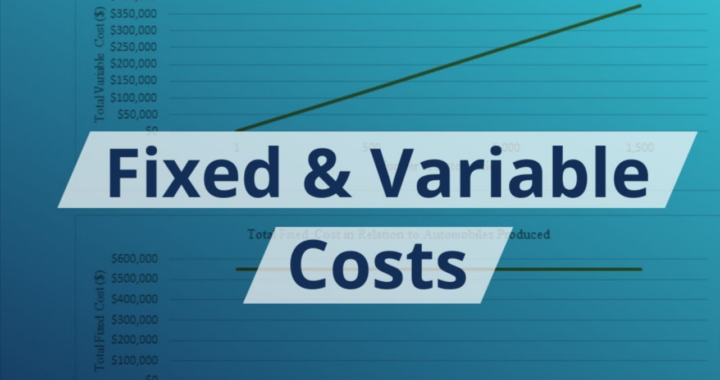How to Prepare Your CPA Firm for a Successful Exit: A Step-by-Step Guide

Charting the Path to Your Ideal Exit
Selling your CPA firm after years of dedication and growth can be both rewarding and daunting. You’ve invested time, expertise, and resources into building a thriving practice, and now it’s time to realize its full value. Whether you aim to sell to a larger firm, merge with a strategic partner, transition ownership to key employees, or pass it along to family, careful preparation is critical. The steps you take before the exit will shape how profitable and seamless the process becomes. Proper preparation ensures you maximize the financial and legacy outcomes you deserve.
Assessing Your Current Position
Start by gaining a clear understanding of where your CPA firm stands. Conduct a comprehensive review of your financials: examine profit-and-loss statements, balance sheets, and cash flow reports from the past three to five years. Identify patterns such as steady revenue from recurring engagements like tax preparation, audits, and advisory services. Evaluate your operational structure to ensure processes are documented and free of inefficiencies. Consider performing a SWOT analysis (Strengths, Weaknesses, Opportunities, Threats) to pinpoint areas of strength and identify potential obstacles that could affect buyer interest.
Valuation Basics
A key question for every CPA firm owner is: “What’s my firm worth?” Valuation for CPA firms typically involves methods such as multiples of EBITDA, revenue, or book of business. Market comparisons can also provide valuable insights, especially when similar-sized firms in your region have recently sold. Engaging a valuation expert or M&A advisor specializing in professional services can provide an accurate assessment, helping you set realistic expectations and negotiate from an informed perspective.
Strengthening Internal Processes
Potential buyers want assurance that your CPA firm operates efficiently and can thrive without your day-to-day involvement. Standardize workflows for services like tax filings, audits, and client onboarding. Develop comprehensive training materials for staff and ensure regulatory compliance is current. Diversify supplier and vendor relationships to mitigate risks tied to overreliance. These measures demonstrate that your firm is a well-oiled machine capable of maintaining its success post-transition.
Building a Strong Management Team
The strength and stability of your management team significantly influence the value of your CPA firm. Buyers prefer firms where operational knowledge isn’t concentrated solely in the owner. Empower key managers by delegating responsibilities and ensuring they’re equipped to handle client relationships and critical tasks. A clear succession plan and evidence of a capable leadership team enhance buyer confidence and valuation.
Brand and Reputation—Your Firm’s Differentiator
A strong reputation and a loyal client base are invaluable assets for CPA firms. Highlight your firm’s niche expertise—whether it’s serving small businesses, nonprofits, or high-net-worth individuals. Strengthen your online presence by showcasing positive client reviews and testimonials. Update marketing materials and refine your firm’s branding to ensure it resonates with prospective buyers. Buyers appreciate firms with a solid reputation and identifiable growth potential.
Cleaning Up Financials and Records
Transparency is key to building trust during the sale process. Organize financial records, client contracts, tax filings, and operational documents. Address outstanding disputes, such as unresolved invoices or pending litigation, before marketing your firm. Clear, verifiable records expedite due diligence and increase buyer confidence, making your firm more attractive to potential buyers.
Exit Strategy Timeline and Checkpoints
Preparing for a successful exit takes time and strategic planning. Develop a timeline that includes critical milestones, such as completing a valuation, streamlining processes, enhancing profit margins, or transitioning client relationships to other staff members. Work backward from your target sale date to establish actionable steps at regular intervals. A well-planned timeline signals to buyers that you’ve systematically prepared for the transition, making the process more appealing and efficient.
Partnering with Professionals
Expert guidance can make a significant difference in the success of your exit. Business brokers, M&A advisors, accountants, and attorneys with experience in professional services bring valuable expertise. They can help structure the deal, optimize tax outcomes, and draft agreements that protect your interests. While these services require an upfront investment, their value often far outweighs the costs, helping you secure a better sale price and smoother transaction.
Crossing the Finish Line with Confidence
When the time comes to market your CPA firm, your preparation will be evident. Buyers will see a well-organized, profitable, and stable business with a clear path forward. By following these steps—assessing your current position, understanding valuation, streamlining operations, building a strong management team, and enhancing your brand—you position your firm as a compelling opportunity. Thoughtful preparation transforms the exit process into a strategic transition, allowing you to step away with confidence, satisfied with both the financial gains and the legacy you leave behind.
 How Fixed and Variable Costs Impact Your Stock Trading
How Fixed and Variable Costs Impact Your Stock Trading  Finance Lease : Master Your Financial Future
Finance Lease : Master Your Financial Future  Finance Loan : Unlock Your Financial Freedom Today
Finance Loan : Unlock Your Financial Freedom Today  How to Prepare Your CPA Firm for a Successful Exit: A Step-by-Step Guide
How to Prepare Your CPA Firm for a Successful Exit: A Step-by-Step Guide  Leveraged and Inverse ETFs: Strategies for Volatile Markets
Leveraged and Inverse ETFs: Strategies for Volatile Markets  Hallmark Insurance Downgrade: Protect Your Investments Now!
Hallmark Insurance Downgrade: Protect Your Investments Now!